Since April is Sexual Assault Awareness Month, I chose to visit the VIP Center (found in the lower level of the Blough-Weis Library) to speak with Wynn Phillips, the Director of Violence Prevention, about books that pertain to sexual assault awareness, so that I could share a list of books/resources for those interested.
To be clear, all the books on this list contain themes of sexual assault, and some include addiction and self-harm/suicide attempts as well as other potentially triggering topics for some people. We want each of you to take care of your mental (and physical) well-being, so please be aware of these triggers if you choose to pick up any of the suggested works.
While the term “Me Too” was coined all the way back in 2006 by activist Tarana Burke, the movement really took off on a broad scale in 2017 when Alyssa Milano, an actress, urged victims of sexual harassment and sexual assault to share their stories, particularly on social media. Out of this movement came the book Brave by Rose McGowan.
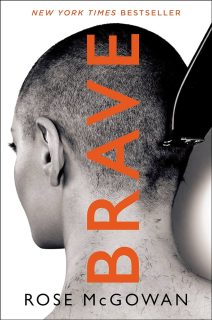 Brave is a memoir by American actress and activist Rose McGowan, who you may know from her roles in The Doom Generation or Scream or other films throughout the 90s. The book covers how McGowan spent her younger years as a member of the controversial group, Children of God (now known as The Family International), and the sexual assault she faced at the hand of disgraced movie producer, Harvey Weinstein. The memoir came out the same week as McGowan’s 4-part docu-series, “Citizen Rose,” that covers the abuse she experienced and her role in the Me Too movement.
Brave is a memoir by American actress and activist Rose McGowan, who you may know from her roles in The Doom Generation or Scream or other films throughout the 90s. The book covers how McGowan spent her younger years as a member of the controversial group, Children of God (now known as The Family International), and the sexual assault she faced at the hand of disgraced movie producer, Harvey Weinstein. The memoir came out the same week as McGowan’s 4-part docu-series, “Citizen Rose,” that covers the abuse she experienced and her role in the Me Too movement.
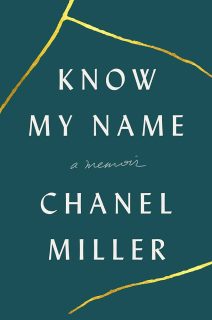 Another memoir that took the world by storm is Know My Name by Chanel Miller, who wrote the book to reclaim her identity and shine a light on the realities of sexual assault cases and their effect on the victims. Miller is known to many in the world as Emily Doe, the victim in the trial of convicted sexual offender, Brock Turner. After her victim impact statement went viral and led to changes in California law, she decided to take back her own story and transform the way people think about sexual assault and the realities of healing from such trauma.
Another memoir that took the world by storm is Know My Name by Chanel Miller, who wrote the book to reclaim her identity and shine a light on the realities of sexual assault cases and their effect on the victims. Miller is known to many in the world as Emily Doe, the victim in the trial of convicted sexual offender, Brock Turner. After her victim impact statement went viral and led to changes in California law, she decided to take back her own story and transform the way people think about sexual assault and the realities of healing from such trauma.
If there is only one book on this list that I would pick up, it would be this one. I followed some of the trial as the sentencing came out and read Miller’s victim impact statement on Buzzfeed (linked here). Her words, her story, and the grace with which she imparts her trauma, anger, and desire for justice and for Turner to realize the true crime he had committed almost brought me to tears.
The next two recommendations are both by author and advocate, Jennifer Storm.
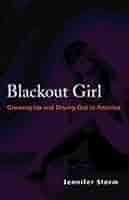 Blackout Girl: Growing Up and Drying Out in America gives you an up-close-and-personal look at the life of a teenage girl already drowning her days away in alcohol and drugs, drowning out the trauma of rape. Her vulnerability and victimization was amplified by her struggles to reconcile herself with her sexual orientation. In this riveting memoir, Storm outlines the depths of her addictions and her path towards redemption and joy.
Blackout Girl: Growing Up and Drying Out in America gives you an up-close-and-personal look at the life of a teenage girl already drowning her days away in alcohol and drugs, drowning out the trauma of rape. Her vulnerability and victimization was amplified by her struggles to reconcile herself with her sexual orientation. In this riveting memoir, Storm outlines the depths of her addictions and her path towards redemption and joy.
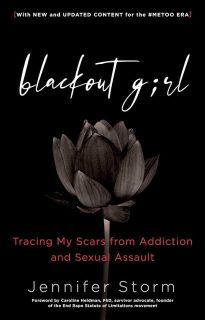 Storm later took a reimagined approach to her previous memoir and came out with Blackout Girl: Tracing My Scars from Addiction and Sexual Assault. In this brutally honest memoir, she not only revisits her childhood rape and addictions but details how they led her to a life of advocacy. She uses the work to speak to other survivors and show them that they are not alone and that they can reach the light at the end of the tunnel. Storm covers how she had to dig into the secrets hidden in her past and how she began to heal from the shame she had shrouded herself in. She added new chapters to this piece after the #MeToo movement to show how society was growing and changing and could continue that trend.
Storm later took a reimagined approach to her previous memoir and came out with Blackout Girl: Tracing My Scars from Addiction and Sexual Assault. In this brutally honest memoir, she not only revisits her childhood rape and addictions but details how they led her to a life of advocacy. She uses the work to speak to other survivors and show them that they are not alone and that they can reach the light at the end of the tunnel. Storm covers how she had to dig into the secrets hidden in her past and how she began to heal from the shame she had shrouded herself in. She added new chapters to this piece after the #MeToo movement to show how society was growing and changing and could continue that trend.
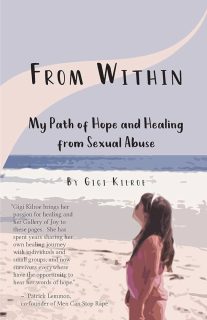 The last nonfiction work of this list is From Within: My Path of Hope and Healing from Sexual Abuse by Gigi Kilroe, who Wynn told me is actually local. This biographical work is about Kilroe’s journey as a survivor of sexual abuse. She writes of her transition from betrayal and physical and emotional pain to her newfound passion to help those who unfortunately find themselves in similar circumstances. This is not a very well-known work, but it appears to be quite powerful.
The last nonfiction work of this list is From Within: My Path of Hope and Healing from Sexual Abuse by Gigi Kilroe, who Wynn told me is actually local. This biographical work is about Kilroe’s journey as a survivor of sexual abuse. She writes of her transition from betrayal and physical and emotional pain to her newfound passion to help those who unfortunately find themselves in similar circumstances. This is not a very well-known work, but it appears to be quite powerful.
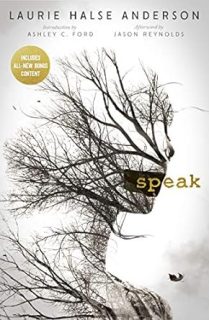 If you prefer to read fiction over nonfiction, a recommendation for you would be Speak by Laurie Halse Anderson. This young adult fiction novel shows the hypocrisy of high school and the well-used line, “Speak up for yourself – we want to know what you have to say.” Readers follow high school student and outcast, Melinda, as she faces the reality of being sexually assaulted by a boy who attends her school. As she begins her process of healing, Melinda faces another violent encounter with the same boy, but this time she fights back and refuses to let herself be silenced.
If you prefer to read fiction over nonfiction, a recommendation for you would be Speak by Laurie Halse Anderson. This young adult fiction novel shows the hypocrisy of high school and the well-used line, “Speak up for yourself – we want to know what you have to say.” Readers follow high school student and outcast, Melinda, as she faces the reality of being sexually assaulted by a boy who attends her school. As she begins her process of healing, Melinda faces another violent encounter with the same boy, but this time she fights back and refuses to let herself be silenced.
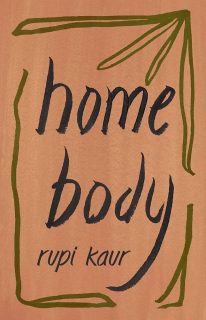 Lastly for this list is the poetry collection Home Body by Rupi Kaur. This work takes readers through the past, present, and potential of the self. Kaur reminds you that your body is your home and encourages you to claim it as such. Fill up with love, acceptance, community, family, and embrace change as it brings growth. She illustrated the work herself and focused on themes of nature and nurture and light and dark, urging readers to find rest.
Lastly for this list is the poetry collection Home Body by Rupi Kaur. This work takes readers through the past, present, and potential of the self. Kaur reminds you that your body is your home and encourages you to claim it as such. Fill up with love, acceptance, community, family, and embrace change as it brings growth. She illustrated the work herself and focused on themes of nature and nurture and light and dark, urging readers to find rest.
I have read a few of Rupi Kaur’s collections, this one included, and for those who may be hesitant to pick up poetry know that I am the same, but I understood and enjoyed Kaur’s work.
I want to reiterate that readers interested in these books should research trigger warnings prior to picking them up.
If you or someone you know has faced sexual assault or harassment know that Susquehanna University has resources put in place to help, both physically and mentally. You do not have to stand alone. Please visit the VIP Center on the lowest floor of the Blough-Weis Library or find resources online through the SU website (link here) or their Instagram @vipcenter_su.
Thank you to Wynn Phillips and the VIP Center for partnering with me for this blog post.
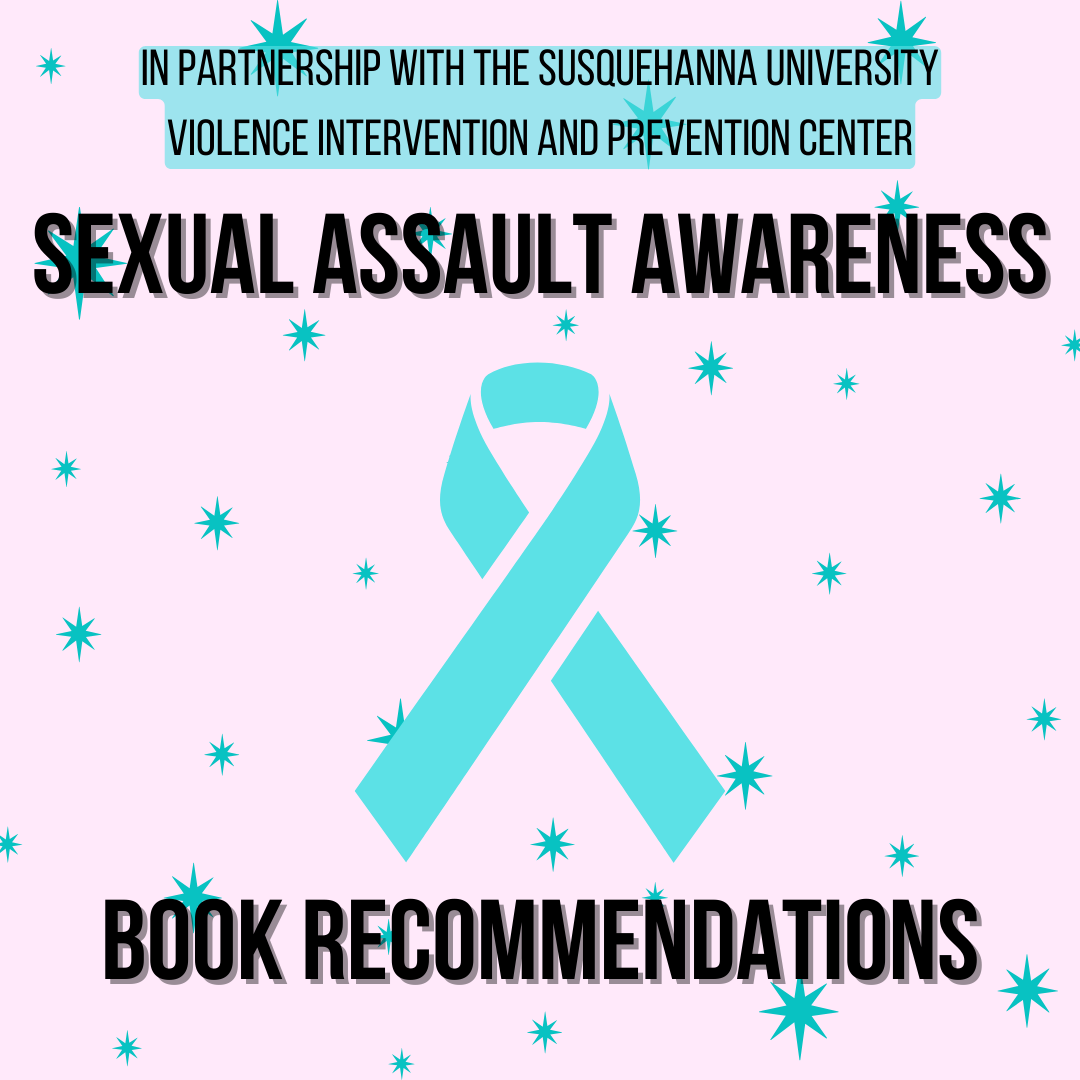
You must be logged in to post a comment.